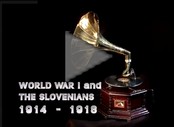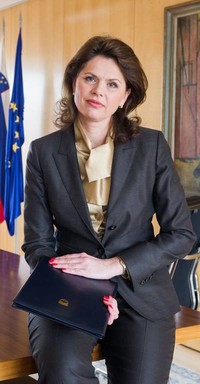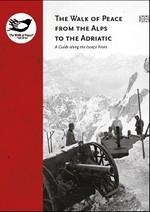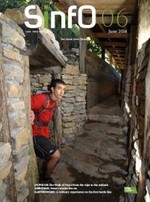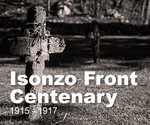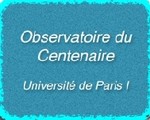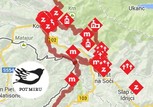Contribution of former Prime Minister Alenka Bratušek on the 100th Anniversary of the Outbreak of the First World War
“This world is so big. Everybody has enough room on this earth, and the earth would produce enough food for all if it were not for the lack of one thing: 'love for thy fellow man'. If each man loved his fellow man as he loves himself, if everyone possessed the same goodness and justice, mankind would be spared all the misery of this world”. These are the thoughts of Ciril Prestor, a Slovenian soldier in the Austro-Hungarian army, written in his diary after the Great War. From the vantage point of today, it seems impossible to conceive of a time when heads of state and military commanders could afford to force the masses into catastrophic ‘games’ for a few centimetres of land. On the other hand, those masses marched to destruction as god-fearing, humble and obedient cannon fodder. Imperialistic appetites fomented a war that became a range for testing new, destructive weapons, and whose strategy of trench warfare claimed the lives of vast number of conscripts, especially from the lower and middle classes of the population.
The turmoil of the First World War also took its toll of Slovenian men and boys who went into battle as Austro-Hungarian soldiers. The opening of the Isonzo Front brought the battles to Slovenian national territory, the Alpine region around the Soča River, where the fighting was extremely demanding. The letters and accounts of our soldiers testify to the inhuman conditions in which they fought for the objectives of those in power. In their fighting and the desire to survive, they had to face difficult terrain, extreme weather conditions, disease and food shortage. Ciril Prestor wrote: “If a judge had sentenced me to what we had to go through during the war, I would have chosen instant death instead”. The civilian population was not spared either, especially in the territories where the front lines ran.
The end of the war brought devastation to nature, the economy and human life. The economy and population took quite a few years to recover from the military rampage. The only population group strengthened by the war was women, who had to carry all the burdens in the absence of their husbands and sons, thus growing more self-sufficient and self-confident. Although the period brought significant shifts in the situation of women, their path was still not easy. In the years of war, the families of workers and peasants who sacrificed their male members transcended the traditional framework of the man as head of the family and the woman as housewife. Women had to take up both roles during the war. They had to overcome their insecurity and fear of the future and take over the reins. In the struggle for the survival of their families, they took up female as well as male tasks, even the hardest ones. On the other hand, they volunteered for activities near the battlefields. Social care in the form of humanitarian activity and nursing wounded soldiers were the principal contributions of women in support for soldiers who returned from the trenches wounded and weak. Without this support, the number of war victims would have been even higher and conditions on the battlefields even more severe, as women also collected food and clothes for the fighting soldiers. Therefore, the role of women in the First World War was not negligible; it was an important factor in society which had an impact on its future. Namely, women in Slovenia actively participated in strengthening of national awareness, by collecting signatures for the May Declaration, for example.
The Great War significantly changed the political map of Europe. In the wake of the Austro-Hungarian Empire, new states appeared, and Slovenians were liberated from a thousand years of German domination. But the old adversities remained alive, and new ones were born, too; after only twenty years of peace, marked by unhealed wounds and traumas, humanity faced the burden of a new war.
Ciril Prestor concludes his First World War diary with the following words: “Let these memories remain for my later years as a passing glance at the years of the world war, at the largest global massacre in the history of human race, which I hope was the last. Let the memory of the victims of the world war remain bright for us and for all our descendants. What happened in 1914-1918 has passed and will not happen again.” Although the wish did not come true for Prestor, let us hope that it comes true for us. We must all struggle for this. I frequently stress, too, that problems and disagreements should be resolved promptly, with open communication and tolerant discussion – in the family, in broader society as well as in the international community. The latter must play a key role in stabilising situations that could lead to a bloodbath, of which we are now reminded by numerous monuments and graveyards. As a society, we must strive, on the basis of mutual respect, to allow individuals to fully develop their unique and individual abilities, as this is the only way that leads to the free and open society about which people dreamt at the turn of the 20th century and in the bloody embrace of the First World War.
